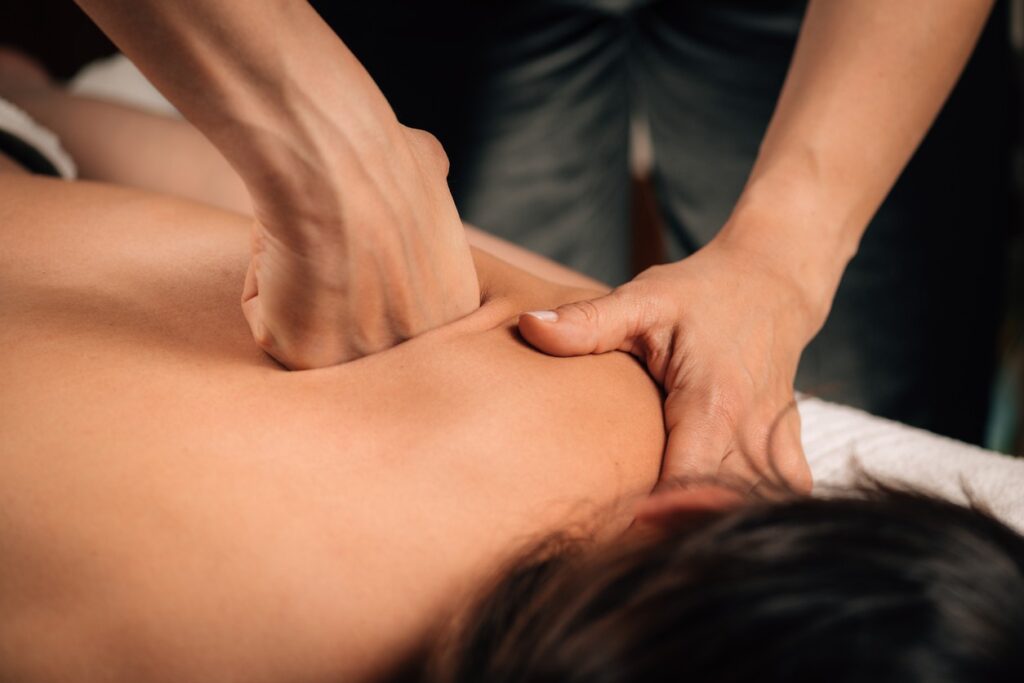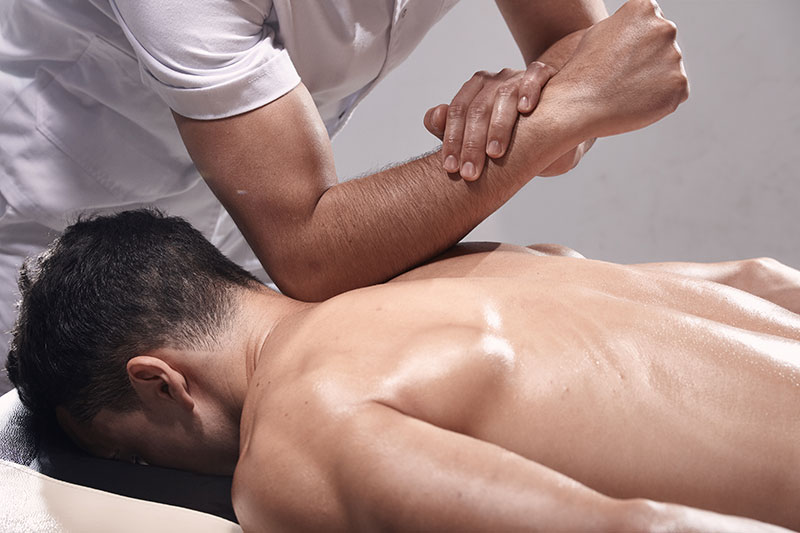Engaging in sports and physical activities demands peak physical condition and resilience. Athletes constantly push their bodies to the limit, making recovery a crucial aspect of their training regimen. Among the various recovery strategies available, deep tissue massage stands out as a powerful tool for enhancing athletic performance and preventing injuries.

1. Injury Prevention:
One of the primary benefits of deep tissue massage for athletes is its role in injury prevention. The targeted pressure applied during the massage helps identify and alleviate muscle imbalances, reducing the risk of injuries caused by overuse or poor biomechanics.
2. Improved Flexibility and Range of Motion:
Athletes thrive on flexibility and a broad range of motion. Deep tissue massage reaches the underlying layers of muscle tissue, promoting increased joint flexibility and range of motion. This is essential for sports that demand agility, such as gymnastics or martial arts.
3. Muscle Recovery Acceleration:
After intense physical activity, muscles can experience microtears and fatigue. Deep tissue massage facilitates the removal of metabolic waste products, such as lactic acid, and enhances blood circulation. This accelerates muscle recovery, allowing athletes to bounce back quicker and train more consistently.
4. Reduced Muscle Tension and Chronic Pain:
Persistent muscle tension and chronic pain are common challenges for athletes. Deep tissue massage focuses on releasing tension in the deeper muscle layers, providing relief from discomfort and contributing to overall relaxation. This is particularly beneficial for individuals engaged in repetitive motions or high-impact sports.
5. Enhanced Performance:
Regular deep tissue massage contributes to enhanced athletic performance by maintaining optimal muscle function. Reduced muscle stiffness, improved blood flow, and heightened body awareness all play a role in elevating an athlete’s overall performance level.

6. Post-Event Recovery:
In the aftermath of a sports event, athletes often experience heightened muscle soreness. Deep tissue massage aids in the removal of residual toxins and metabolic byproducts, alleviating post-exercise soreness and expediting the recovery process.
7. Stress Reduction and Mental Well-Being:
Athletes face not only physical but also mental stress. Deep tissue massage induces a calming effect on the nervous system, reducing stress and anxiety levels. This mental rejuvenation is crucial for maintaining focus and composure during competitions.
8. Increased Body Awareness:
Deep tissue massage fosters a heightened awareness of one’s body. Athletes who receive regular massages are better equipped to identify potential issues early on, allowing for timely intervention and prevention of more significant problems.
Conclusion:
In the competitive world of sports, gaining a competitive edge requires a holistic approach to training and recovery. Deep tissue massage emerges as a key player in this strategy, offering a myriad of benefits that address both the physical and mental demands placed on athletes. As more athletes integrate deep tissue massage into their routine, the evidence continues to underscore its pivotal role in unlocking peak performance and sustaining long-term athletic success.

Recent Comments